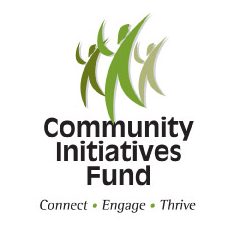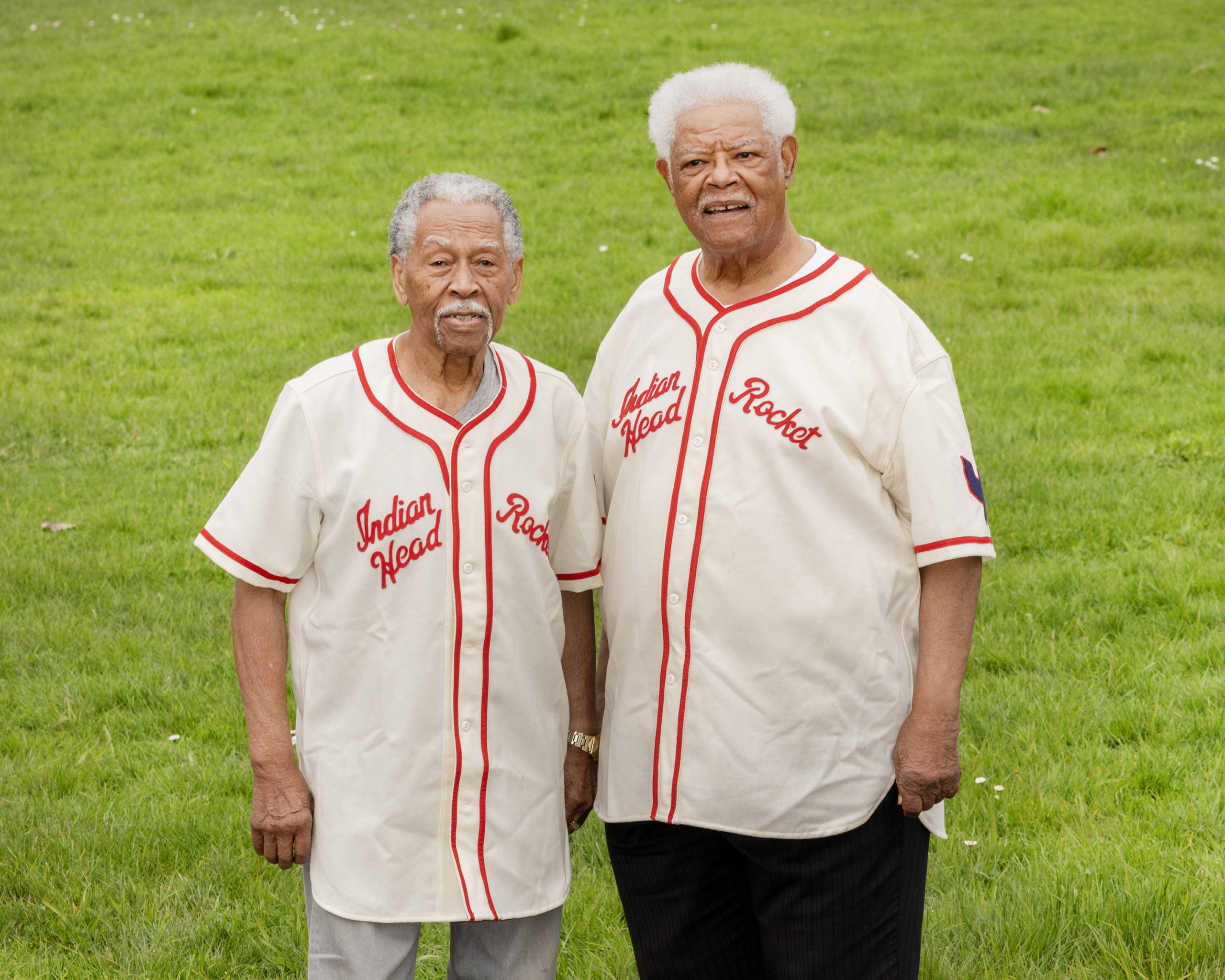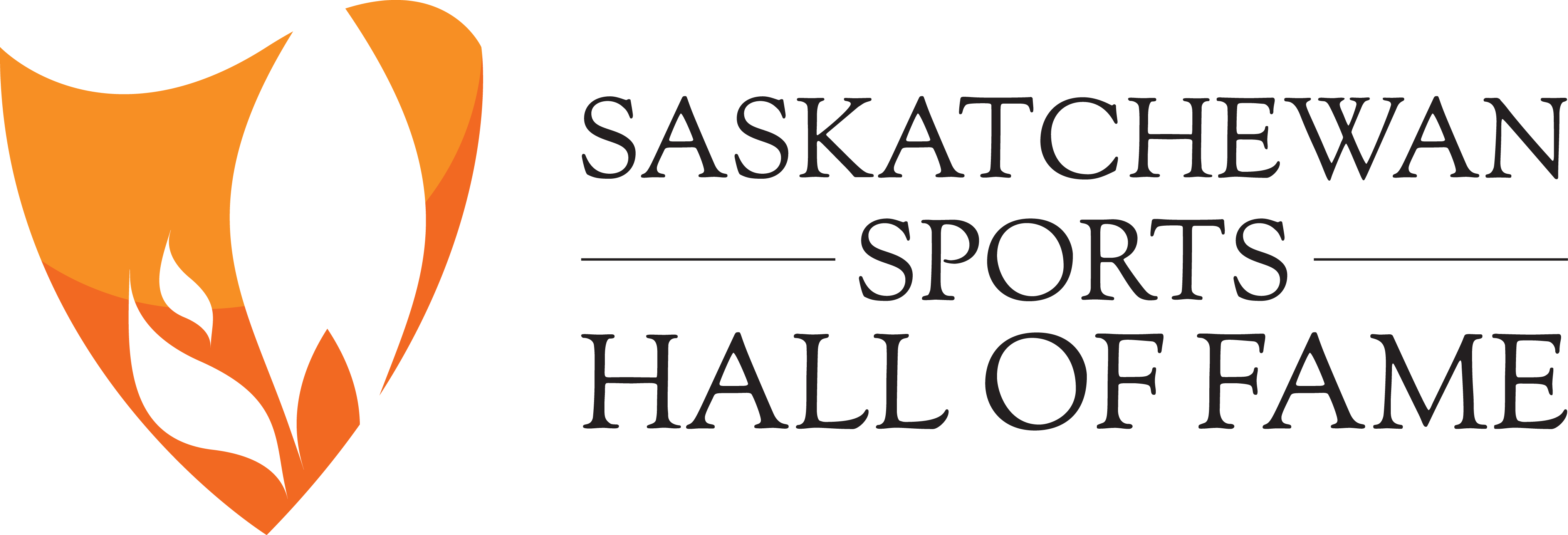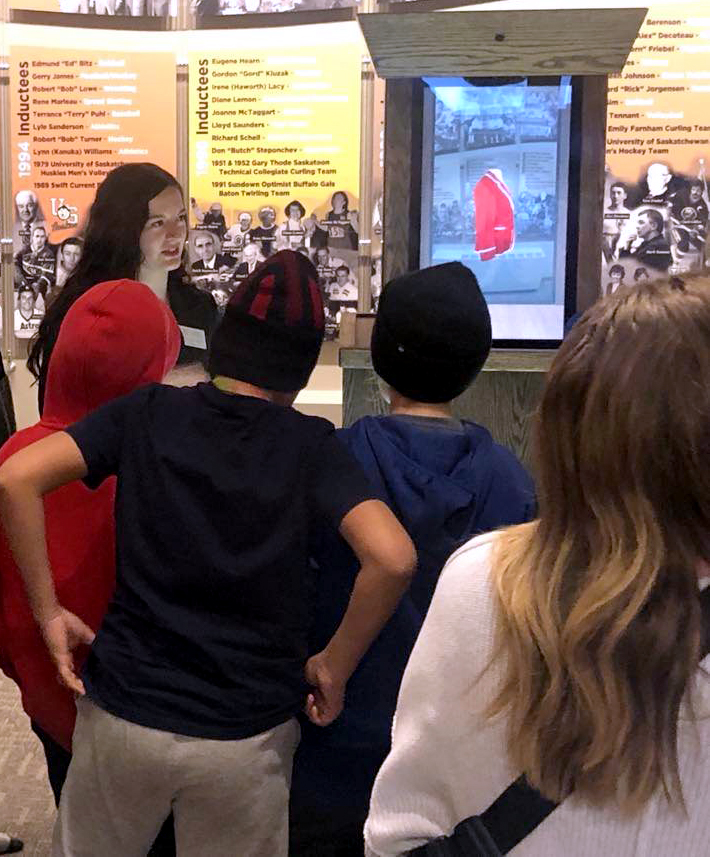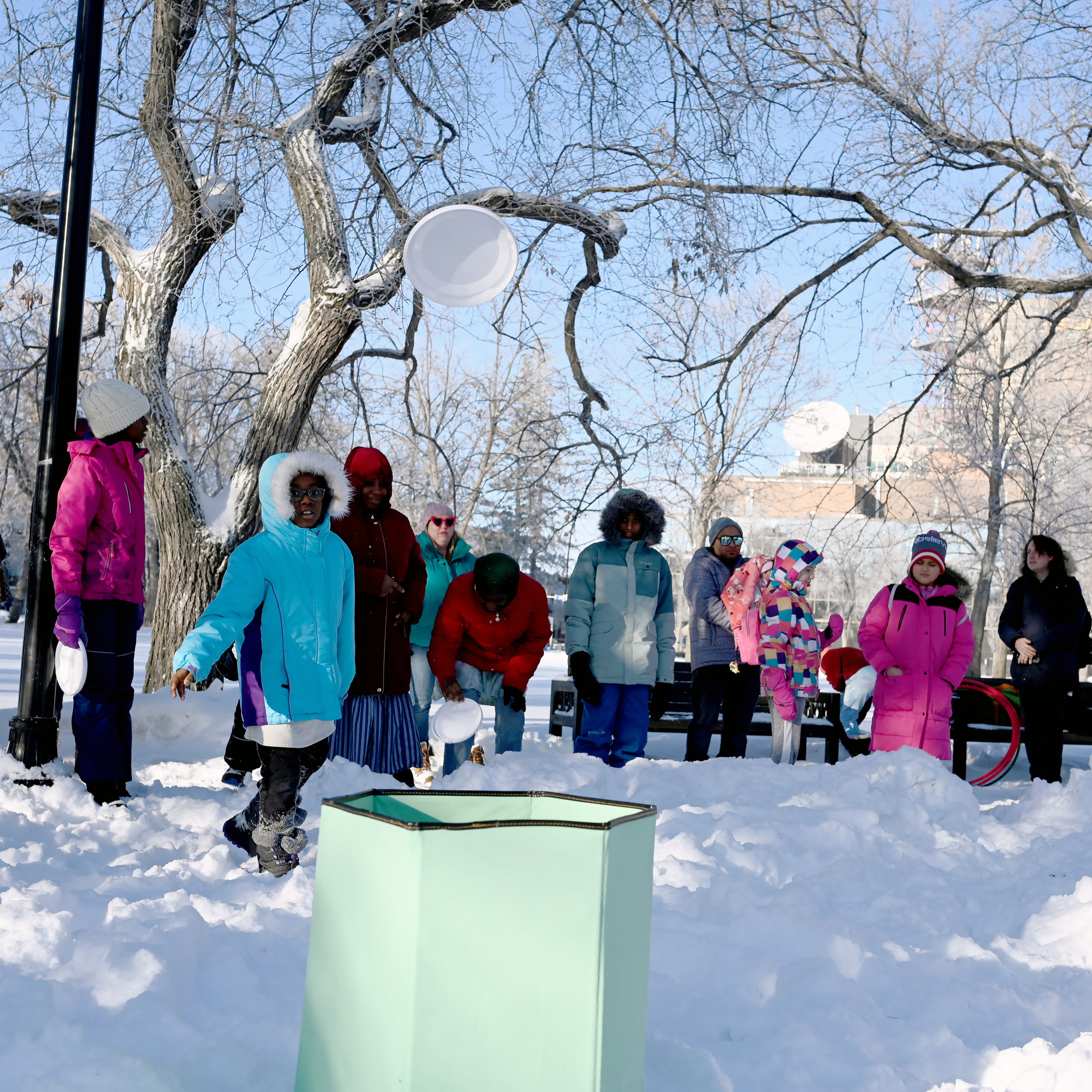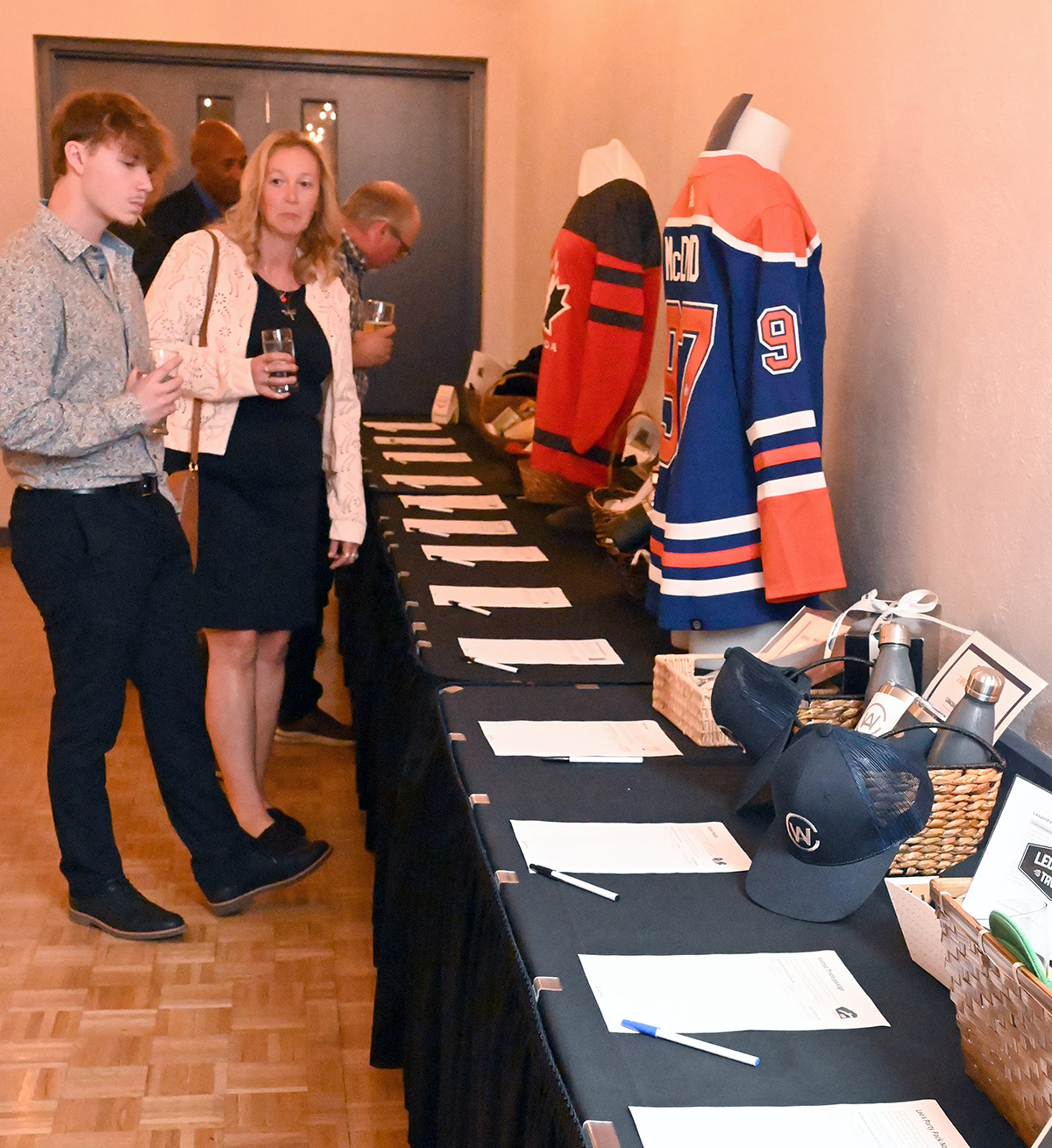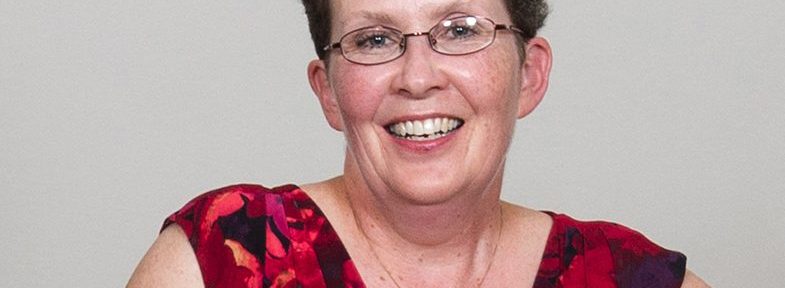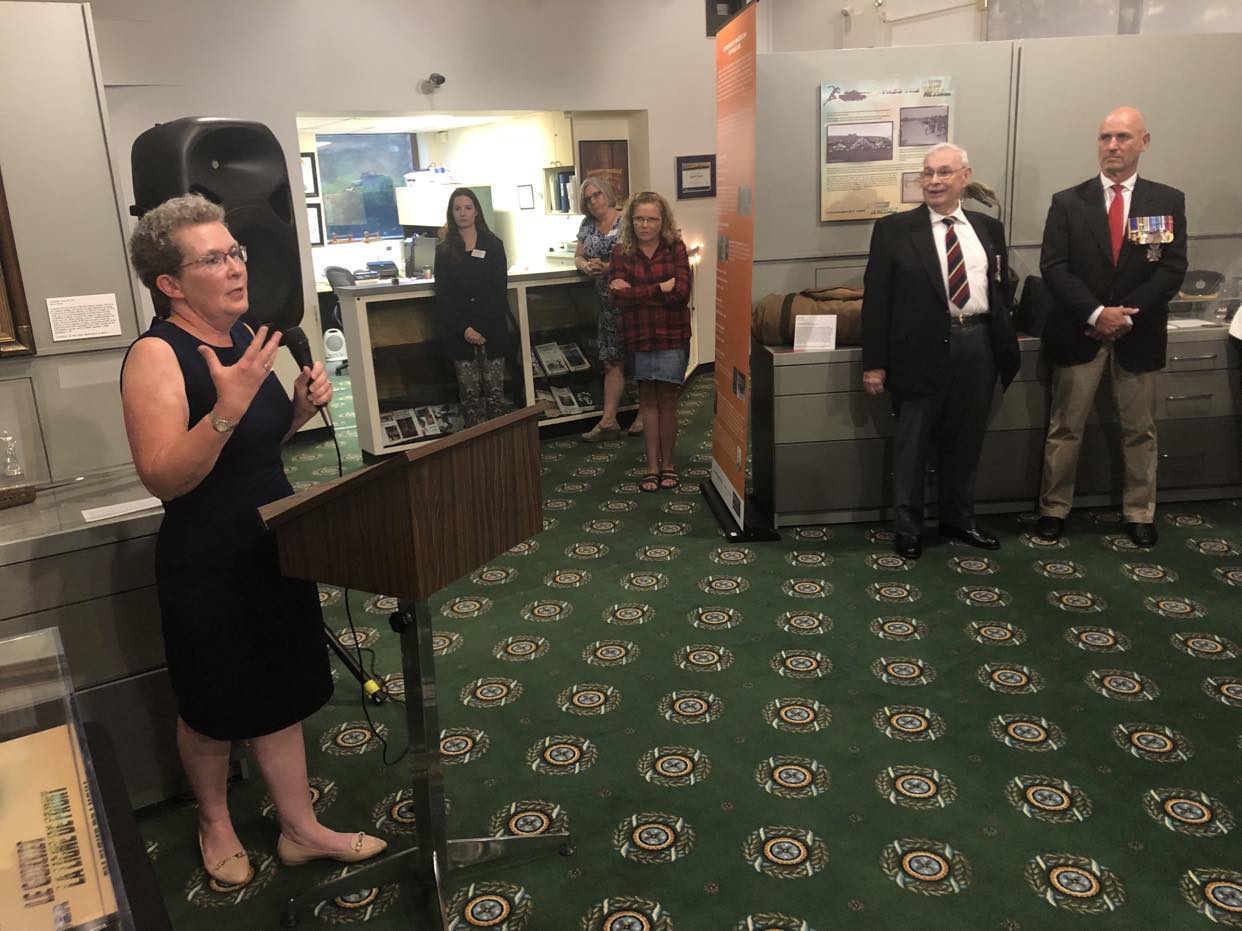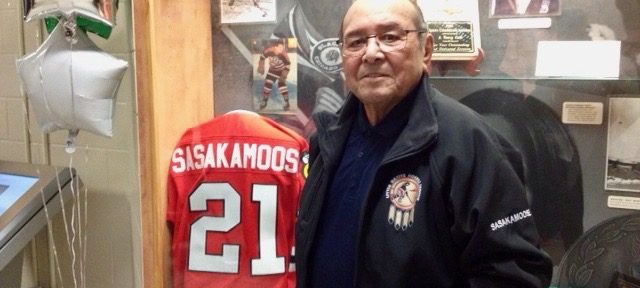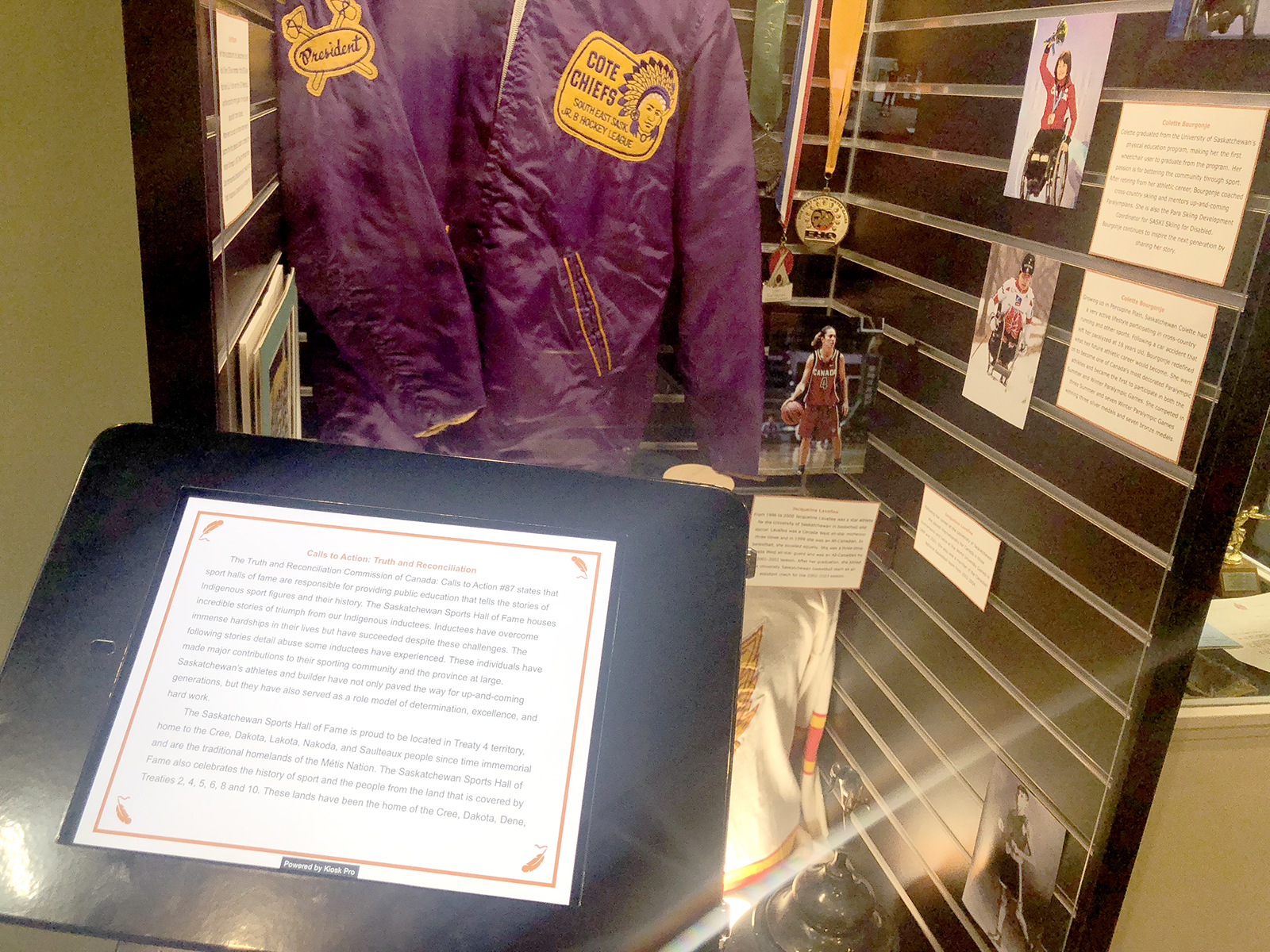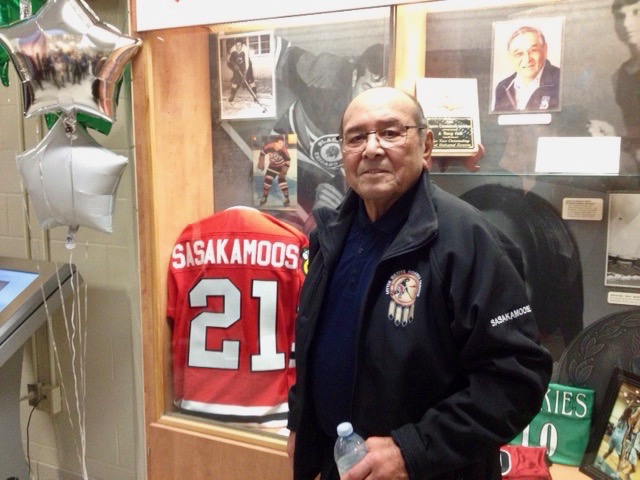It is the 20th annual Archives Week in Saskatchewan. To celebrate the important role archives play in preserving the history of the province, the Hall of Fame is sharing some of the archival oddities that capture the rich history of sport in Saskatchewan.
We have been digging through the archives to find interesting stories and photos that capture unique and lesser-known stories from the history of Saskatchewan sport. Each day during Archives Week we will share one of those stories, add it to this post and share it through our social media channels.
Monday’s Archive Week post features a photo of Joe Griffiths, an SSHF inductee who was a key figure in the history of the University of Saskatchewan athletics.
Ernest Wynne “Joe” Griffiths started his 32-year career as the University of Saskatchewan’s Physical Director in 1919. Griffiths mentored amateur and professional athletes including 1928 Olympic gold medalist Ethel Catherwood, breaststroke world record holder Phyllis Haslam, and Olympic decathlete Bob Adams. Griffiths himself coached swimming at the 1936 Olympics, track and field at the 1948 Olympics and was also part of the Canadian delegation in 1932.
In honour of Joe’s lengthy career, the University of Saskatchewan named their outdoor athletic field in his honour in 1936.
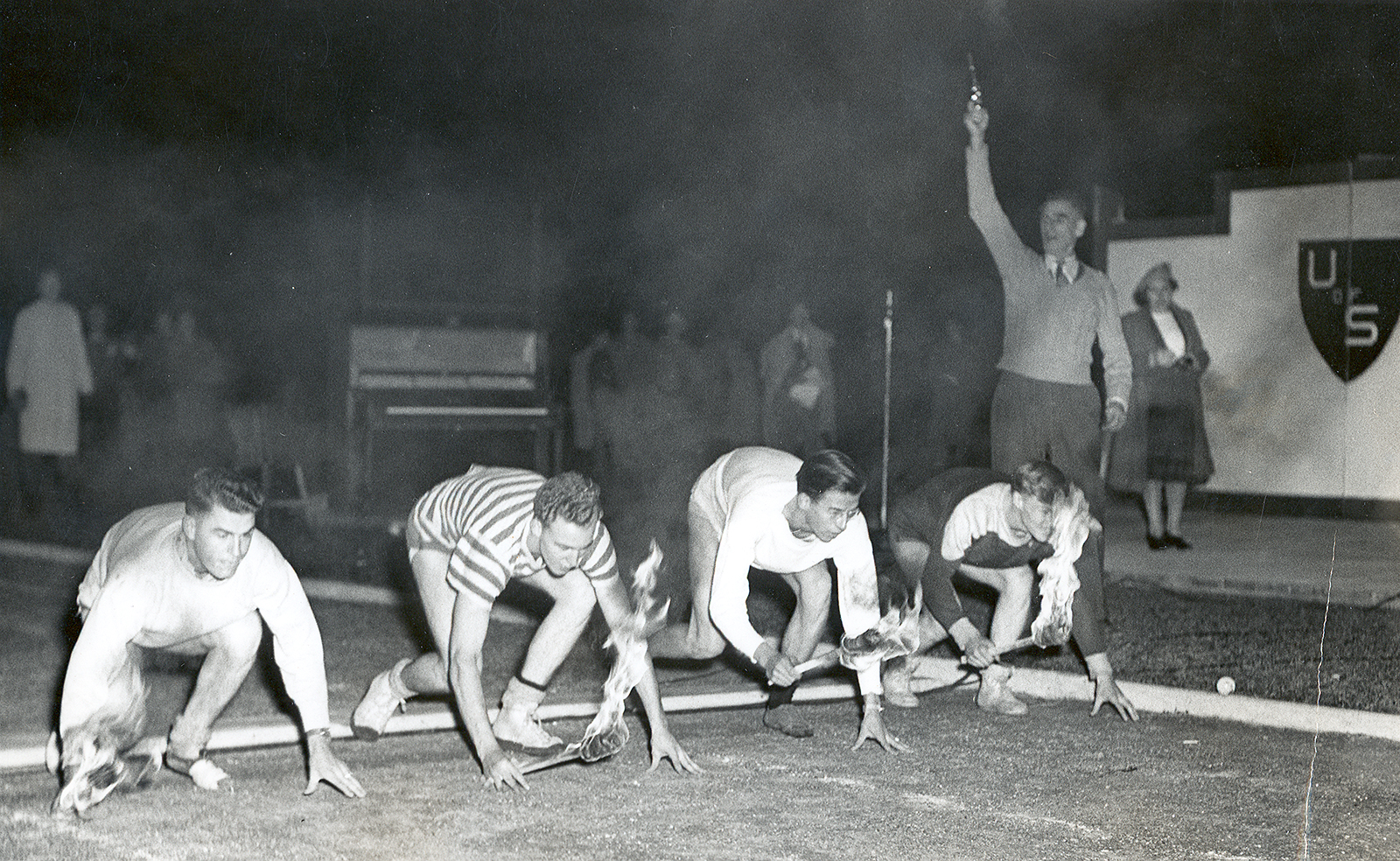
Accession number: University of Saskatchewan Archives, A-1087
This photo features Griffiths at right firing the starter’s pistol during the Gil Watson memorial torch race during the “Griffiths Rally” held during Frosh Week at the U of S. Four students prepare to use flaming torches instead of batons during the race to compete for the Gil Watson memorial trophy.
October 24, 1976, was George Reed Day at Taylor Field. Reed’s No. 34 was retired at half time of the Saskatchewan Roughriders game on the 11th anniversary of Reed’s 268-yard rushing day – still the second-most in CFL history.
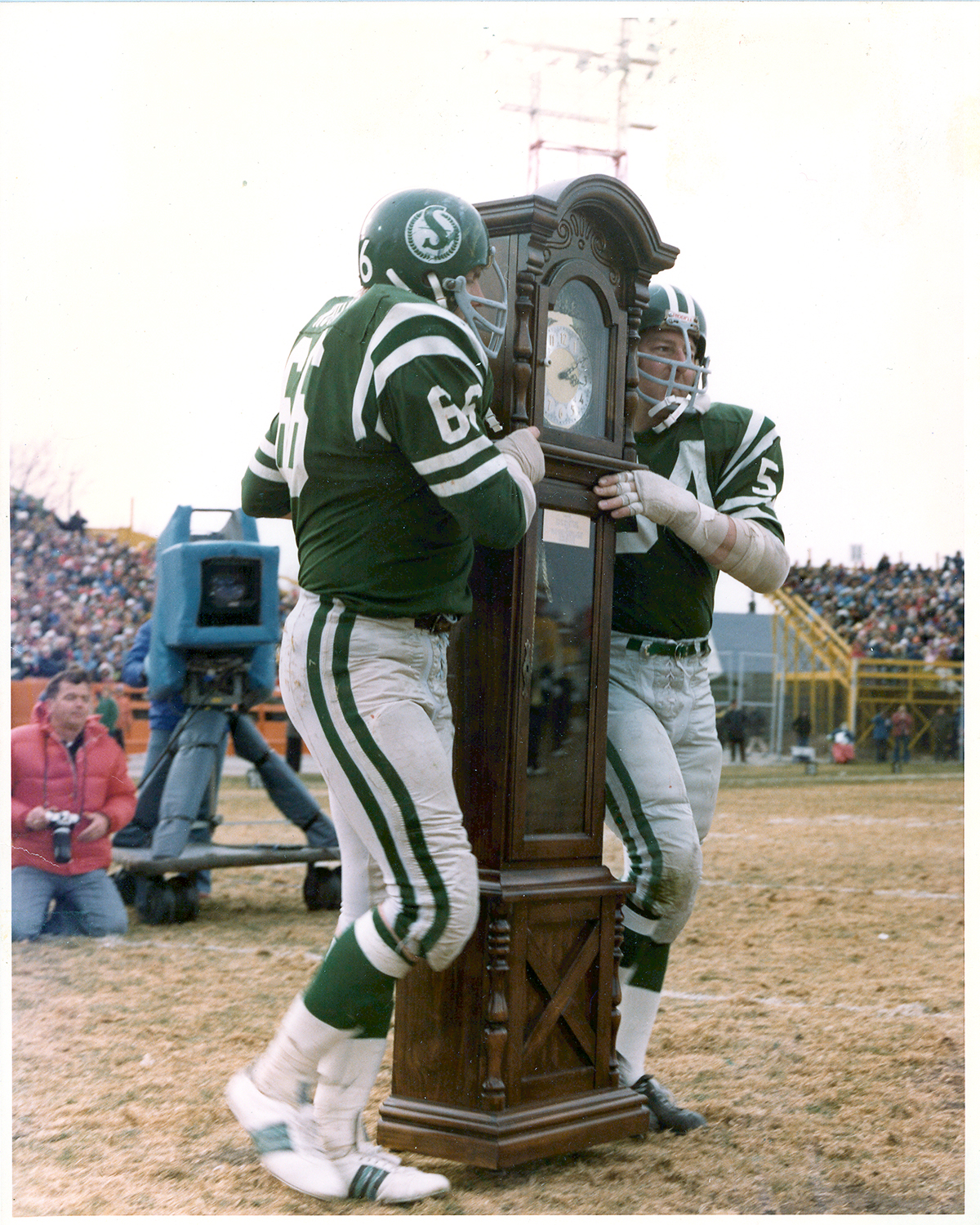
Accession number: 2011_36_71 d
Tim Roth, left, and Gary Brandt from the Saskatchewan Roughriders carry a grandfather clock purchased by the Roughriders players, coaches and staff and onto Taylor Field to present to George Reed on George Reed Day in 1976.
There was a “presentation by the fans” of a green 1977 Cadillac purchased with proceeds from a fundraiser and delivered by future SSHF inductee Arnold Boldt at the half-time ceremony. Boldt had recently won two gold medals at the 1976 Olympiad for the Physically Disabled (a precursor to the Paralympics).
Archives capture moments in time and the Hall of Fame has some behind-the-scenes photos from the 1936 Berlin Olympics involving Regina’s Vern Pettigrew and other members of the Canadian wrestling team.
Pettigrew finished fourth in the featherweight division in the men’s freestyle wrestling at the 1936 Games. The archival photos show a glimpse at the world during the final Olympics before the Second World War interrupted the regular schedule of the Games for 12 years including their travel via boat and train to reach Germany as well as in the Olympic Village.
The photo below shows the athletes preparing to parade into the Olympic Stadium in Berlin, while the Hindenburg flies over the ceremony. The Zeppelin-built airship famously caught fire and crashed just outside of New York City less than a year later.
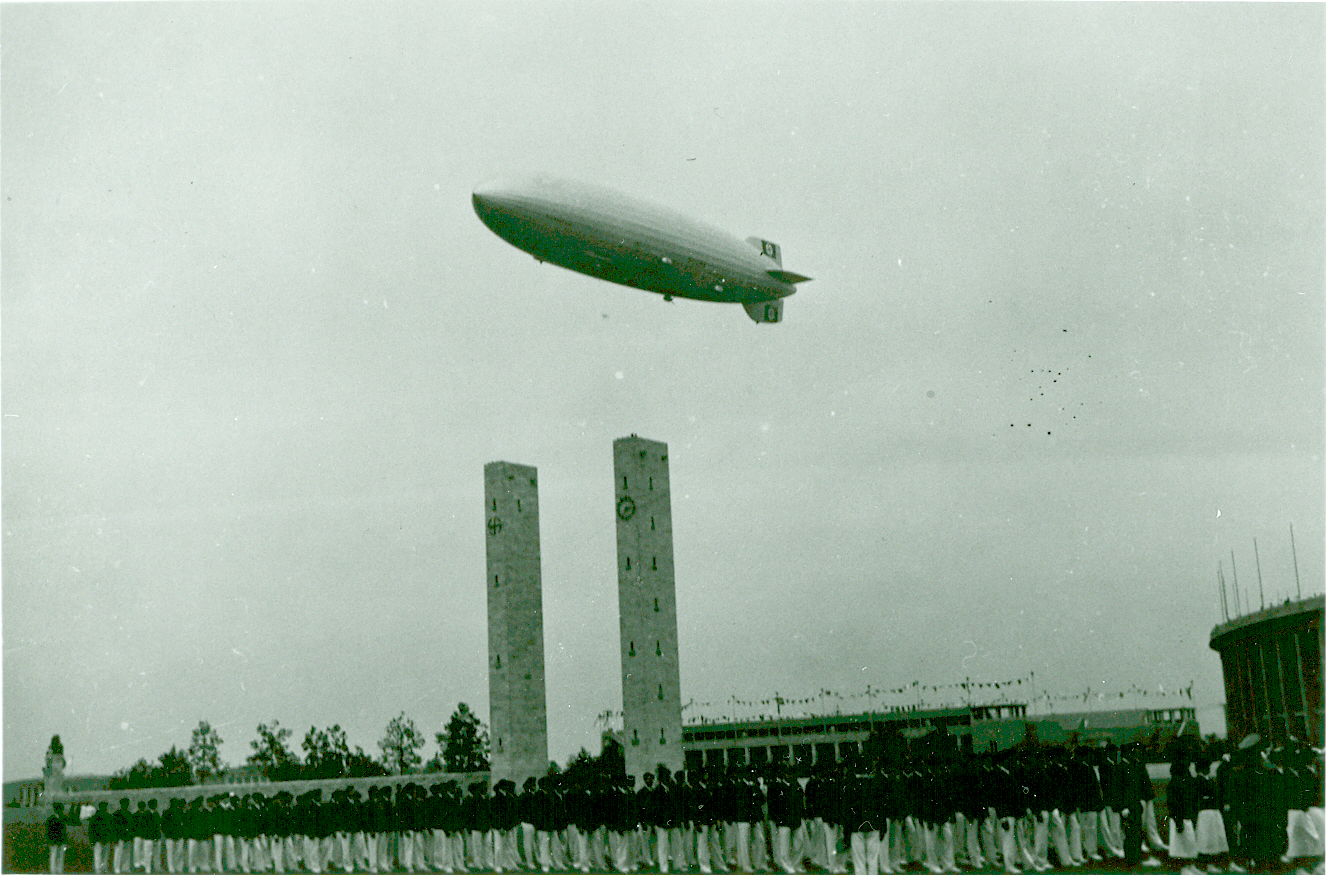
Thursay’s photo for Archives Week features a family feeding a baby pig at the table. But this is not just any family, that is SSHF inductee George Genereux at left shortly after he won a gold medal in trap shooting at the 1952 Helsinki Olympics while he was still a 17-year-old student at Nutana Collegiate in Saskatoon. Genereux won the Lou Marsh Award as Canada’s athlete of the year, one of only two Saskatchewan athletes to receive that honour. Also pictured is his mother Catherine Mary, his father Dr. Arthur George Genereux, and his sister Carol Mary. Carol Mary Genereux is the mother of Oscar-winning actor Brendan Fraser.
This photo is part of a series of photos around the Genereux family home in Saskatoon after George returned home after winning the gold medal.
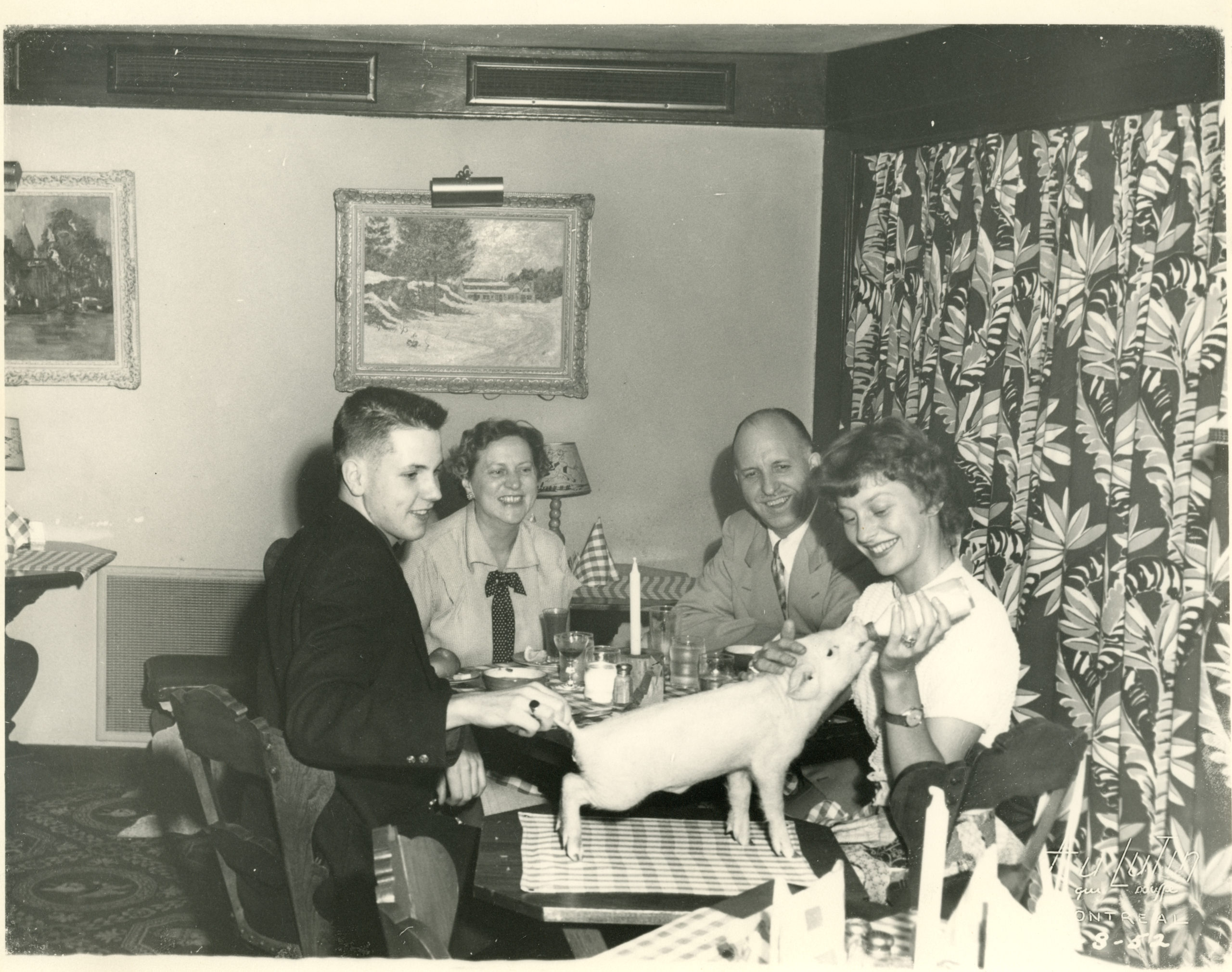
Accession number: 2001_36_183c
We saved the most unique photo for Friday. Many sports were born from a flash of inspiration – throwing a ball into a suspended peach basket in a YMCA or hitting a ball with a stick across the fields of 15th century Scotland. The creation of some other sports was perhaps, a little less inspired.
We give you auto-polo. While polo on horses is one of the oldest team sports in the world, the advent of the motor vehicle allowed for a truly new take on the ancient sport. Originating in the United States, auto-polo became the first motorsport showcased at the Canadian National Exhibition in Toronto. It was largely played at fairs and exhibitions given that the expense of owning an automobile limited participation. Fatalities were rare, but did occur, particularly given the lack of seatbelts in vehicles of the time as players would often be tossed out of their vehicle upon impact with another vehicle. The Great Depression effectively ended the brief era in which auto-polo was played.
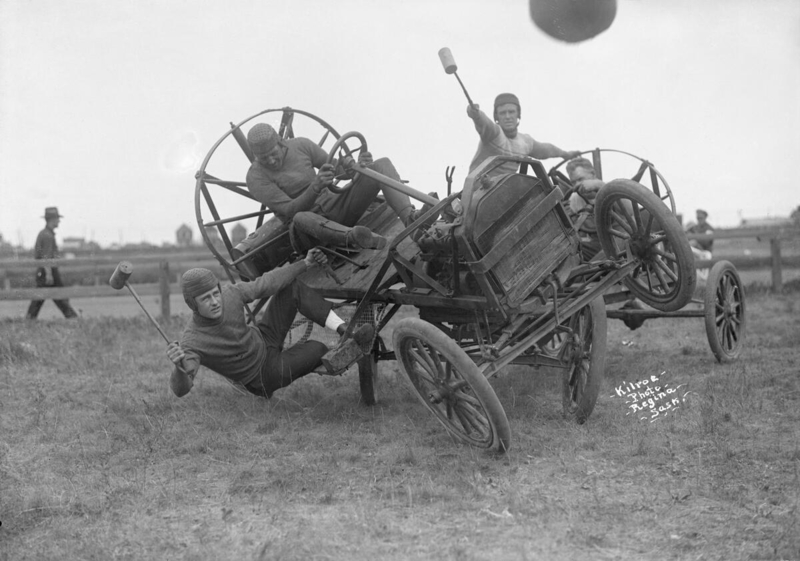
Accession number: CU170102
This photos depicts an auto-polo game being played in Regina in 1919. This is one of several photos taken by William G.B. Kilroe of Regina which are part of the William Kilroe fonds at the Glenbow Archives in Calgary.
On Wednesday, the Provincial Archives of Saskatchewan hosted a presentation by architectural historian Frank Korvemaker that focused on the “needles in a haystack” that he has researched throughout his career and his joy at discovering the answer in the archives.
The Saskatchewan Sports Hall of Fame was one of the local archives that had items on display at the event. The SSHF’s “Major Bell Collection” features some of the oldest artifacts in the Hall of Fame’s collection with trophies and medals dating back to the 19th century.
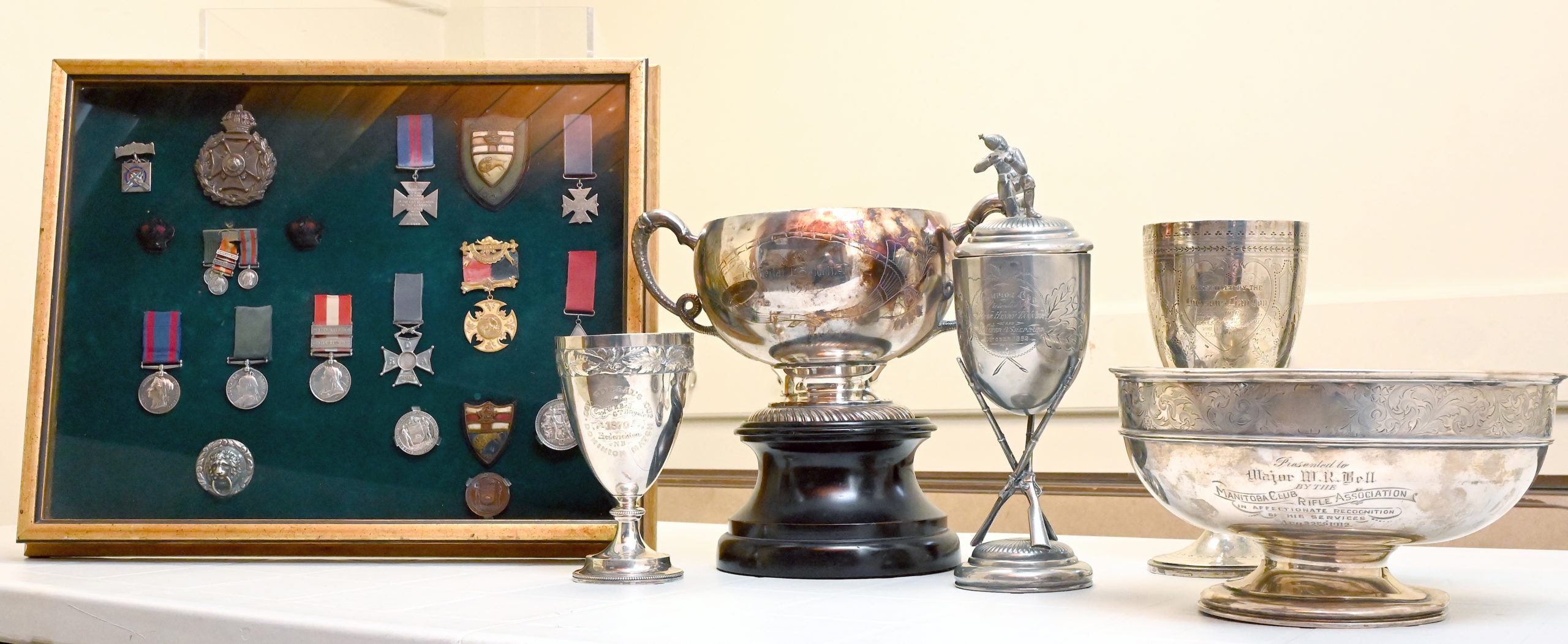
The five trophies on display (and pictures left to right) are: Governor General’s Cup – Dominion Match (1870), North-West Territorial Exhibition Cup (1895), Tanner-Sheppard Champion Cup (1892), Hudson’s Bay Company Cup (1887), and the Manitoba Club Rifle Association Loving Cup (1912). The shadowbox features war medals and insignia, shooting medals and a Lieutenant-Governor’s Gold Medal from 1895. The oldest medals date back to 1865 and 1866.






